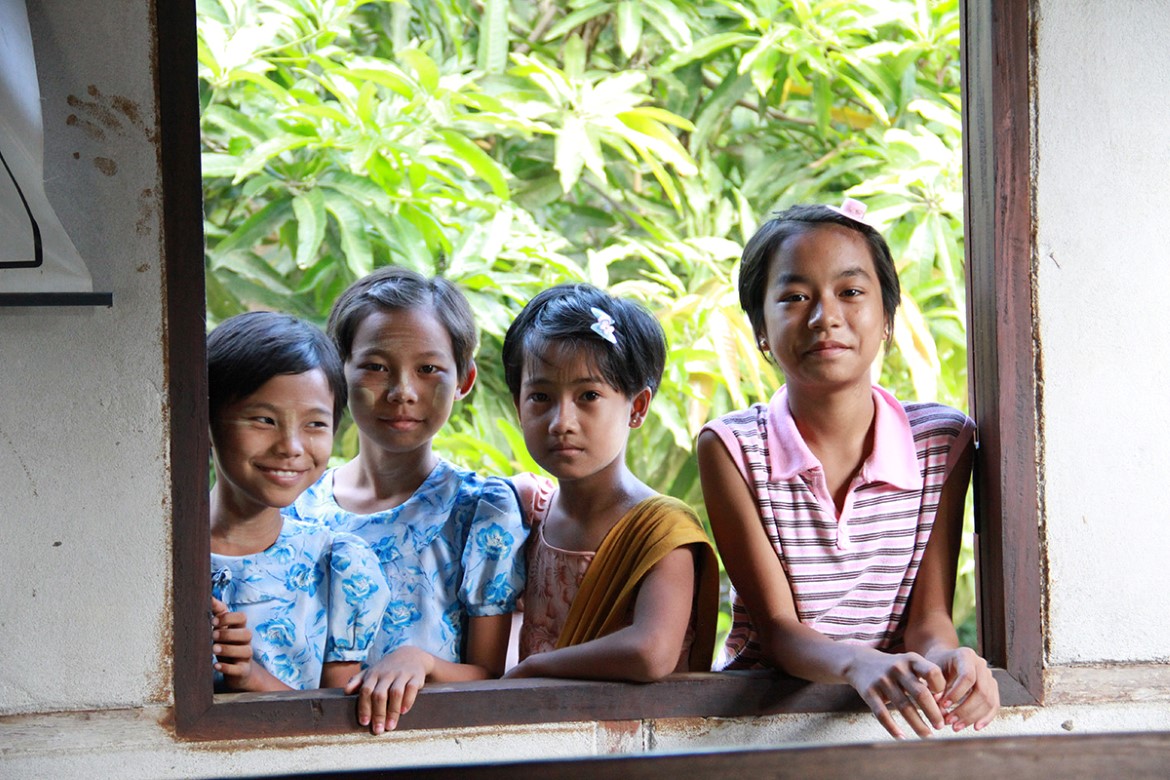
Health and Sustainable Development in Myanmar
Project title: Health and Sustainable Development in Myanmar – Competence Building in Public Health.
Background
The medical curricula at graduate and post graduate level are in need of modernization and there is lack of population-based health data from Myanmar. A major challenge is that economic and social benefits are expected from recent reforms to be delivered to the ordinary people of Myanmar; they need to see the dividends of peace and democracy on the ground. Hence, the “People Centered Development” was announced by the President. This requires the average family not only to enjoy basic necessities, but also health and education facilities. Health, through education, research and service provision, will contribute to sustainable development and help the development of a democracy.
Myanmar is affected by both non-communicable and infectious diseases, and has indicators at the lower end of the scale. Life expectancy in Myanmar is 56 years. Mortality rate for children aged 5 years and younger is 56 per 1000 live births, and around 40 % of the same children group is stunted. According to Myanmar National Health Plan (2011-2016) , “Development of Human Resources for Health” and “Promoting Health Research” are important program areas that needs to be emphasized, and according to Ministry of Education, “Improvement of Quality Education is prioritized.
In order to build well-functioning health services, national health information systems are needed as well as training health personnel and academics to make use of collected data to feed into national health plans and policy, and to inform local health workers. Thus, competence in research methodologies and modern curriculums in public health and graduate medical education is much needed.
Rebuilding of an academic culture in Myanmar
The project is a collaboration between two central Universities in Myanmar, University of Public Health and University of Medicine 1, as well as University of Oslo, Norway and the Universities of Mahidol and Prince of Songkla in Thailand.
The project will introduce modern teaching methods, curricula improvements both for Masters of Public Health and in Basic Medicine, including new courses, E-learning systems in anatomy to fit Myanmar settings and among others, courses in research methods, how to write articles and publication methods. There will be a strong focus on capacity building of faculties through extensive training in new curriculum and research methods.
Some faculties will be offered PhD fellowships to further strengthen the academic capacity at the institutions.. Both Master and PhD students will be involved in research and data collection to establish a Health Information System Program (HISP) through a one year pilot in a rural and urban setting. The research projects linked to the pilot has a special focus on women, namely maternal and child mortality and morbidity.
Infrastructure will be provided for the HISP and mobile phones will be used for data collection, and training and supervision will be provided for users. Following the pilot phase there will be a household survey to evaluate the HISP data, before rolling out the system with full data coverage from all districts in a system tailored to the needs of the state, districts and facility level in Myanmar.
The project also aims at building competence in a multi-national research collaboration regarding project planning, budgeting and accounting through training of staff. Ministry of Health is a strategic partner in the project and health professionals employed in the public health sector will be invited to participate in training as well. A Lancet Series of Health in Myanmar will be published and a Lancet Myanmar Health Alliance will be established with an annual conference with publications and extended abstracts. Myanmar, regional and international institution authors will be invited to contribute to the Lancet Series.
The project has a strong focus on equity by gender and ethnicity in all aspects.
Key goals and achievements
Overall goal
Sustainable development and improved health among the population in Myanmar.
The objectives of the project are
- Strengthened capacity in the priority disciplines of public health and basic medicine at NORHED supported higher education institutions in Myanmar
- Regional /international collaboration in education strengthened
- Strengthened capacity to deliver relevant and high quality research and data available that can be used for healthy public policies in Myanmar
- Regional/institutional collaboration in PhD and research increased and improved
- Appropriate infrastructure, policies and systems to ensure sustainable capacity to educate and research
- Administrative and financial systems up to date and adequate
Total budget
2013-2018: 18 million NOK
Partner institutions
- University of Public Health, Myanmar
- University of Medicine 1, Myanmar
- University of Oslo, Institute of Health and Society, Norway
- Mahidol University, Thailand
- Prince of Songkla University, Thailand
- Ministry of Health, Myanmar (strategic partner)
Contact persons for the project
Nay Soe Manung, Rector, University of Public health, Myanmar
e-mail: naysoemg26@gmail.com
Thit Lwin, Professor, Head of Department of Orthopaedics, University of Medicine 1, Myanmar
e-mail: drwilag@gmail.com
Espen Bjerntness, Professor, Institute of Health and Society, University of Oslo, Norway
e-mail: espen.bjertness@medisin.uio.no
Surakit Nathisuwan, Vice President for International Relations, Mahidol University, Thailand
e-mail: surakit.nat@mahidol.ac.th
Tippawan Liabsuetrakul, Associate Professor, Head of Epidemiology Unit, Prince of Songkla University, Thailand
e-mail: ltippawa@yahoo.com
Dr. Kyaw Khaing, Deputy Director, International Health Division, MoH, Myanmar
e-mail: Kyakhaing68@gmail.com
